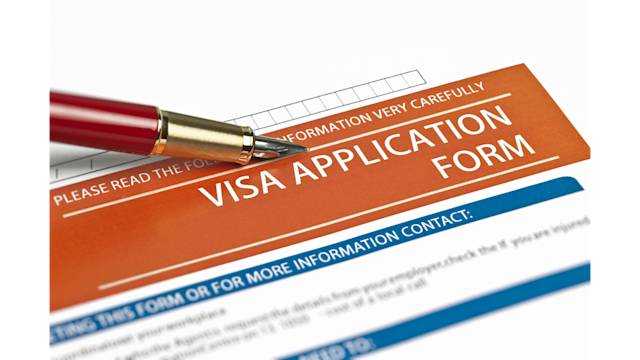
Learn how to get a student visa for Belgium and all the documents you need for that.


Dreaming of studying in Belgium but don’t know how to go about getting your Belgian student visa? You’ve come to the right place! With a bit of preparation, you’ll be packing your bags in no time.
In this guide we’ll discuss:
and answer some frequently asked questions. Let’s dive right in!

If you’re an EEA or Swiss national, you don’t need a visa to enter Belgium. You only need your passport or national identity card to present to the customs officer.
The only thing that’s left to do is register at the city office and apply for your Belgian ID card within 3 months from your arrival.
If you come from a non-EEA country, you must apply for a visa to study in Belgium. The visa requirements vary depending on the length and the purpose of your stay and your nationality.
A short-stay visa (type C): allows you to stay in the Schengen area for a maximum of 90 days in a 180-day period. You can apply for it if you’re planning to take a short course in Belgium.
Note that students from Schengen area member countries planning to stay for less than 90 days don’t need a visa.
A long-stay visa (type D): allows you to stay in Belgium for longer than 90 days and you’ll need to apply for a residence permit. So if you’re planning to pursue a full-time study or a preparatory year in Belgium, a long-stay visa for study purposes is the one you need to apply for.
To apply for a Belgium student visa you need the following documents:
*The documents in any language other than Dutch, French or English must be legalized and translated.
Once you're in Belgium, you'll have to register with the Belgian mutual insurance fund to be covered for any healthcare costs.

One of the main requirements for a Belgian student visa is proof of means to sustain yourself for the duration of your studies. Since you have a foreign bank account, this requirement can prove to be tricky, so you should start preparing in advance.
The minimum financial requirement for the 2023-2024 academic year is €789/month. This number is likely to increase each year, so make sure you check the updated information on the official website of foreign affairs. You’ll need to prove your financial means each year.
You can prove your solvency in 3 ways:
1. Scholarship
If you were granted a scholarship sufficient to cover the required sum, you must submit a document certifying that.
2. An ‘agreement for acceptance of financial responsibility’ (Annex 32)
Someone can act as your sponsor by submitting a declaration to take the responsibility for your solvency. The guarantor will only be approved after undergoing validation by, for example, submitting their payslips and bank statements.
Unfortunately, the process is quite time-consuming. So if your guarantor is rejected, there might not be enough time to arrange another method of proving solvency.
3. Blocked account method
If you’re financially independent, you can transfer your funds to a blocked bank account of your Belgian university. Your university then provides you with a certificate of solvability and releases these funds in monthly payments to your bank account.
This method requires you to transfer at least €950 for each month of your short stay or €12,350 for a full academic year to the university bank account. For the renewal of your residence permit, the amount is decreased to €800/month and €9,600 for an academic year. Note that some universities charge handling fees on top of that too.
You can expect to pay a fee of €80 for the Belgium short-stay visa and €180 for the Belgium long-stay visa.

Here's how you get a Belgian student visa and residence permit.
Though you will usually receive a decision within 15 days, it can easily take up to a few months to get your Belgian student visa approved. That’s why you should start preparing in advance and apply as soon as you get accepted by your university.
Yes, as long as it doesn’t interfere with your studies, you can work up to 20 hours/week on a Belgian student visa.
The short answer is yes. After you finish your studies, you can apply for a ‘search year’ residence permit. This type of permit allows you to work freely for any employer without the need for work authorization. However, you need to find an employer that can sponsor your single permit before the ‘search year’ ends.
This article is for informational purposes only.
Please reach out to content @housinganywhere.com if you have any suggestions or questions about the content on this page. For legal advice or help with specific situations, we recommend you contact the appropriate authorities.